
Samsung
-
Content Count
106 -
Joined
-
Last visited
Posts posted by Samsung
-
-
An Urgent Plea To Members Of Our Federal Parliament: From Concerned Somali Citizens. To Prevent Political Crisis in Federal Somalia.
November 9, 2012
by Somali Concern Group (SCG)
After 21 years of brutal Dictatorship & After 20 odd years of civil starve, anarchy, warlord-ism, terrorism, tribalism, separatism and two devastating droughts, do not fail the over one million refugees paying the heavy price across the border who have waited far too long.
If you fail as you have done to govern yourselves for the last 20 years, the foreign powers who were send to aid you will rise to govern you. The choice is always before you, and getting more clear by the day, whether you will be slaves or whether you will be free. Parliament members are today responsible for President Hassan Sheikh Mohamud, as it was they who voted him into power overwhelmingly. They do not work for him nor represent him. Rather they represent the whole of the Somali population, who have entrusted in them the right to vote on their behalf for the benefit of their country and their countrymen. They have no right to say they do not care. They must care! They have no right to say that whatever the outcome they can get along.
They must remember that their country and their countrymen cannot get along, cannot remain sound, cannot rebuilt its institutions, cannot protect its citizens, cannot move up its place in the world, unless those who have the right to vote do sustain and do guide the course of public affairs by the thoughtful exercise of that right in Parliament. The Divisive policies taken up by President Hassan Sheikh Mohamud, which are in clear violations of our Federal Constitution must be killed in their tracks by Parliament, before it destroys the painful decade long progress made thus far. He has already in his short period in power on numerous occasions overstepped his boundaries, shown no respect or knowledge of Constitutional law, or the Federalism agreed upon. It is the duty of Parliament to check such *********, and be a balance of reason and power.
Members of Parliament do not hold a mere privilege to be exercised or not, as passing fancy may move them. They are charged with a great trust, one of the most important and most solemn which can be given into the keeping of an Somali citizen. It should be discharged thoughtfully and seriously, in accordance with its vast importance. As former Somali Constitution Minister in the Transitional Federal Government (TFG) MP Abdirahman Hoosh has stated For Parliament to accept an incomplete administration would be in violation of the Somali Federal Constitution, and that is unacceptable because the constitution was written to be adhered to,".
Our Constitution never contemplated that the conduct of this country, the direction of its affairs, the adoption of its policies, the maintenance of its principles, should be decided by a minority moved in part by self-interest and prejudice. They were framed on the theory that decisions would be made by the great body of voters inspired by patriotic motives. Faith in the people does not mean faith in a part of the people. It means faith in all the people. Our country is always safe when decisions are made by a majority of those who are entitled to it. It is always in peril when decisions are made by a minority.
We are always confronted with the question of whether we wish to be ruled by all the people or a part of the people, by the minority or the majority; whether we wish our leadership to be dominated by those who have been misled, through the presentation of half truths, into the formation of hasty, illogical and unsound conclusions; or whether we wish those to determine the course of our Government who have through due deliberation and careful consideration of all the factors involved reached a sound and mature conclusion.
In closing remarks, we have in a short period of time with this new leadership come to cross-roads with the politics of the past and that of the new. It is a shame that a new leader who was to be the symbol of our national unity,the guardian and promoter of the founding principles of the Constitution, a fresh face we all had high hopes off would dare attempt to drag us back to divisive policies, and disillude our Federal Constitution and political framework. This of all things can not and will not be the way forward. Members of parliament must take this serious issue into heart. Strict adherence to our Federal Constitution is not a choice, it is the law of the people & land the Somali Federal Republic. As stated in Article 87 of our Federal Constitution (2) "The President of the Federal Republic of Somalia shall carry out his duties in accordance with the Constitution and the other laws of the Federal Republic of Somalia." Continuation of President Hassan Sheikh Mohamud violations of our Federal Constitution after parliament corrects and cautions him on clear violations made thus far, should move Parliament to swiftly adopt Article 92 of our Constitution Impeachment and Discharging of Duties of the President of the Federal Republic of Somalia.
Article 87. The President of the Federal Republic of Somalia(2) The President of the Federal Republic of Somalia shall carry out his duties in accordance with theConstitution and the other laws of the Federal Republic of Somalia.Article 92. Impeachment and Discharging of Duties of the President of the FederalRepublic of Somalia(1) The House of the People of the Federal Parliament can propose the dismissal of the President ofthe Federal Republic of Somalia if he is accused of treason, or gross violation of the Constitutionor the laws of the Federal Republic of Somalia.(2) The motion for dismissing the President of the Federal Republic of Somalia may be introduced byno less than one-third (1/3) of the total membership of the House of the People of the FederalParliament, and may be presented to the Constitutional Court, which shall preside over the case tosee whether it has legal grounds.(3) If the Constitutional Court determines that the case has legal grounds, the President of the FederalRepublic of Somalia may be dismissed by a two-thirds (2/3) majority vote of the total membershipof the two Houses of the Federal Parliament.(4) If the President of the Federal Republic of Somalia is dismissed in accordance with Clauses 1-3 ofthis Article, the Speaker of the House of the People of the Federal -
Abdiwali Gaas is a political heavyweight in Puntland as well as Somalia. Mogadishu politicians fear him after he has shown what he was capable of achieving. Rest assure he is destined to make a big political come back in the near future.
-
Hundreds of locals & intellectuals welcomed the former Prime Minister at an area 60KM away from Bossaso city.
Ra'iisul wasaarihii hore ee Soomaaliya oo maanta si diiran magaalada Boosaaso loogu soo dhoweeyey
Reer Bari cadi ma aha they went out of their way in this Welcome party 60km seriously?
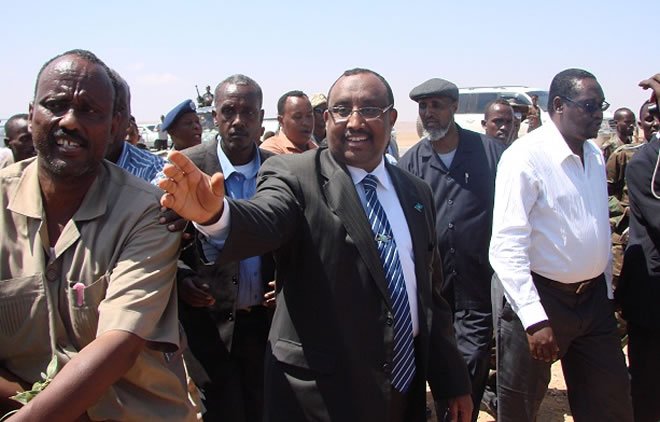
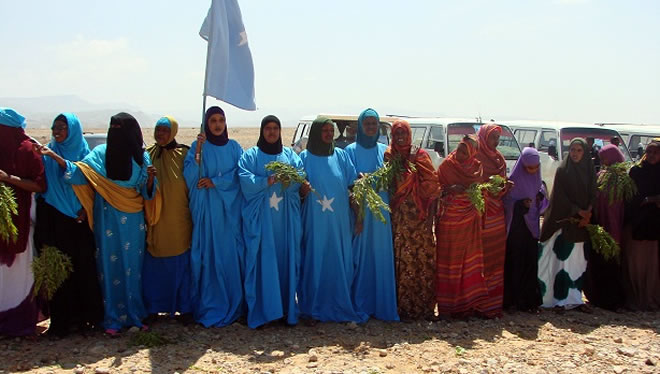
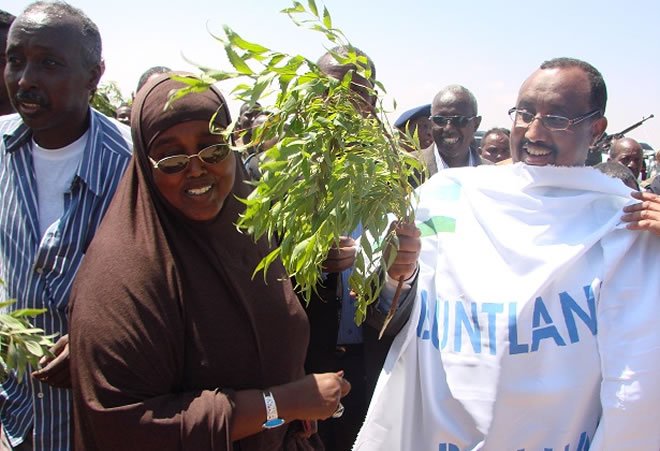

Bossaso (RBC) Former Transitional Federal Government Prime Minister who is a member of Somalia parliament, Abdi-wali Mohamed Ali Gas has been visiting to the regions of semi-autonomous region of Puntland.
Former PM reached Monday afternoon the port city of Bossaso where he was tremendously received by puntland officials, elders and society.
A delegation led by the former PM, Dr. Gas has on Monday visited to Bossaso city with reports that government officials, hundreds of locals and intellectuals reportedly welcomed the PM and his delegation at an area 60KM away from Bossaso town.
Speaking briefly to the elders and media, the PM gratefully thanked to the residents and puntland officials for their hospitality to Bossaso by saying that he is enormously and extremely cheered to visit Bossaso.
‘’ I extremely greet and regard the elders and Bossaso intellectuals and thank you for your hospitality and for coming out side to receive me. Thank you. I am in my home land, I am not in a foreign country. It is a great pleasure for me to visit you.’’ Said Ex-TFG PM.
Ali has been visiting all puntland regions recently since he handed over office to newly appointed Somalia premier Mr. shirdon earlier this Month and earlier in the day, he visited Qardo district of Karkar region and police academy in Armo.
The Mayor of Bossaso and Bari regional governor Galan are among puntlnad officials who officially welcomed the PM and his delegates as they later took him to government guest house for accommodation and he is expected to hold talks with the tribal leaders and local elders in the coming hours.
Ali toured many parts of puntland regions including, Galkayo, Garowe. Burtinle, Goldogob, Qardo, and Bossaso During his stay in Puntland territory.
Political analysts say, Former TFG visit to Puntland region may be translated to that he is seeking Puntland presidency and may stand for the upcoming presidential election.
Raxanreeb.com
XIumSRm6iHg#!" frameborder="0" allowfullscreen>
-

Dr. Abdiwali Gaas gets warm welcome in his hometown ,Galkayo.
Former prime minister of Somalia Dr. Abdiwali Mohamed Ali has been warmly welcomed in Galkayo by hundreds of cheerful crowds and dignitaries from both Puntland as well as Mudug and Galkayo administration.
The former Somalia PM ,upon his arrival, was cordially welcomed by the governor of Mudug as well as Galkayo district mayor.
Dr. Abdiwali Gaas who yesterday handed over responsibility to the new prime minister of Somalia Sacid Farah Shire would start visit to main cities of Puntland.
At Abdullahi Yusuf International Airport Dr. Gas was greeted by hundreds of Galkayo residents who ware waving both Somalia and Puntland flags.The pictures of Dr. Gaas have been seen at Galkayo streets .
After short break at the house of Islan Bashir Islan Abdulle, former PM and accompanied delegation have bee escorted to the house of former Somalia president Abdullahi Yusuf.
Puntlandi.com
-
-






The Son of Mudug Returns Home. Former PM Dr. Abdiwali Mohamed Ali Gaas Lands at Abduallhi Yusuf International Airport Galkayo Puntland Somalia.




-
Ra’isulwasaarihii hore ee Soomaaliya Dr. Gaas oo booqasho ku tagay Dugsiga sare ee Cumar Samatar Gaalkacyo (Sawiro).
Former Prime Minister Dr. Abdiwali Ali Gaas Visits The Best High School In Somalia. Cumar Samatar Gaalkacyo.










-
-
So Far He Has Been To Galkayo, Galdogob, Bursaalax, Burtinle, Garowe, Qardo And Now Bosaso City The Commerical Hub of Puntland State of Somalia. Where He Has Been Getting The Welcome Only A Boqor Deserves.
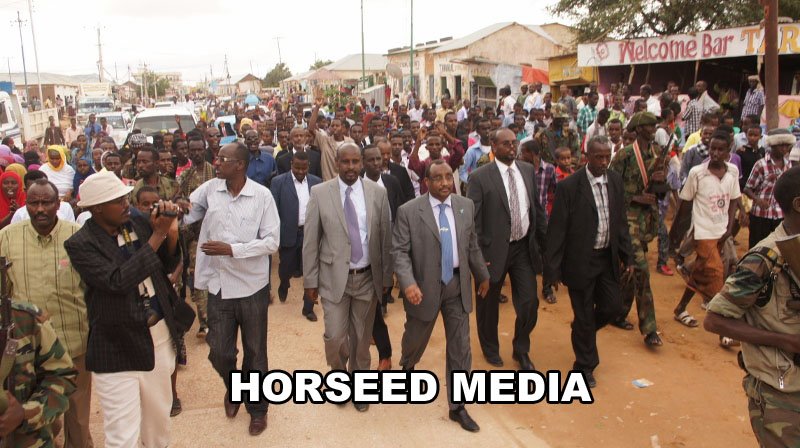
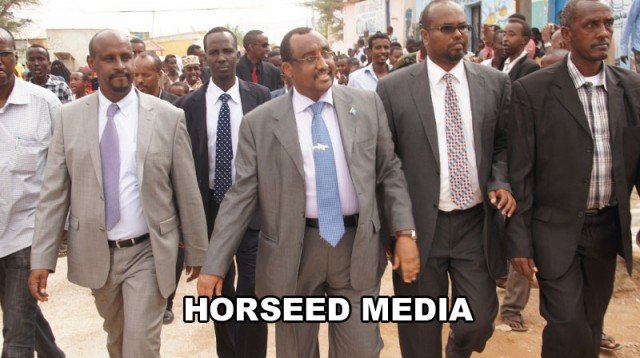
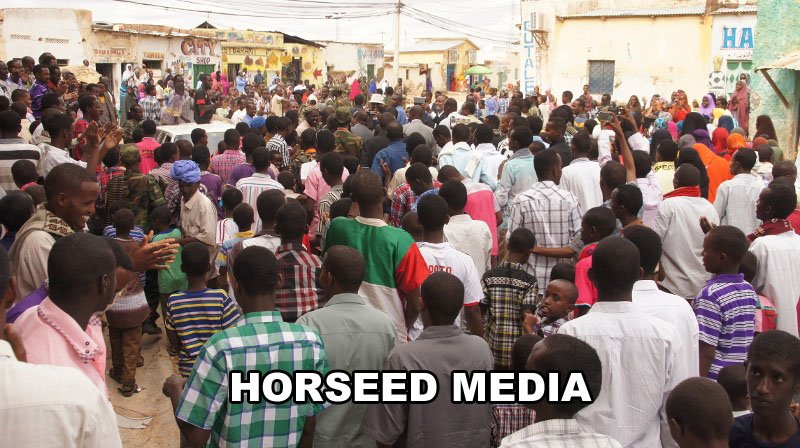

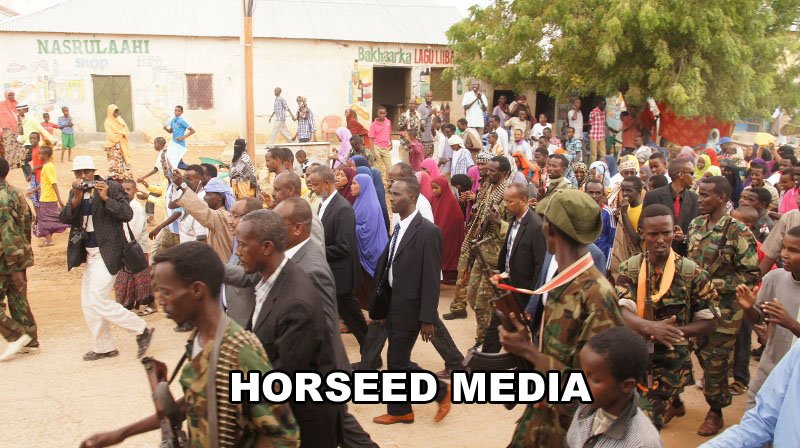
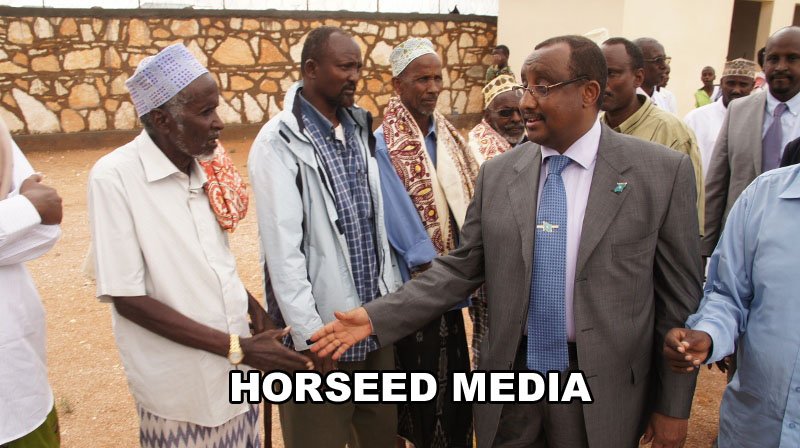
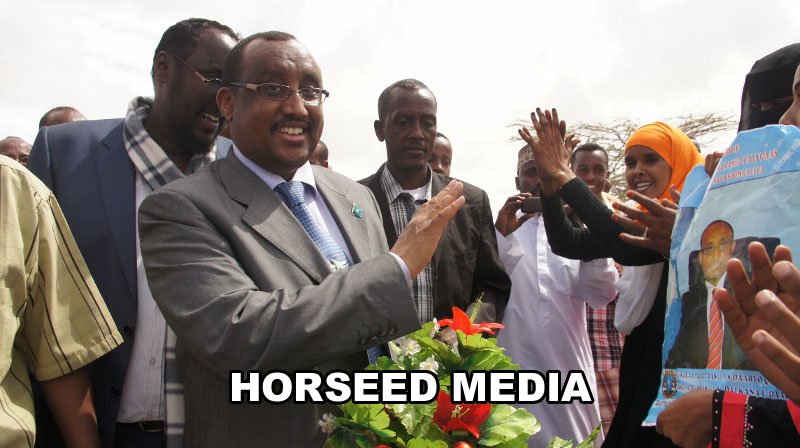
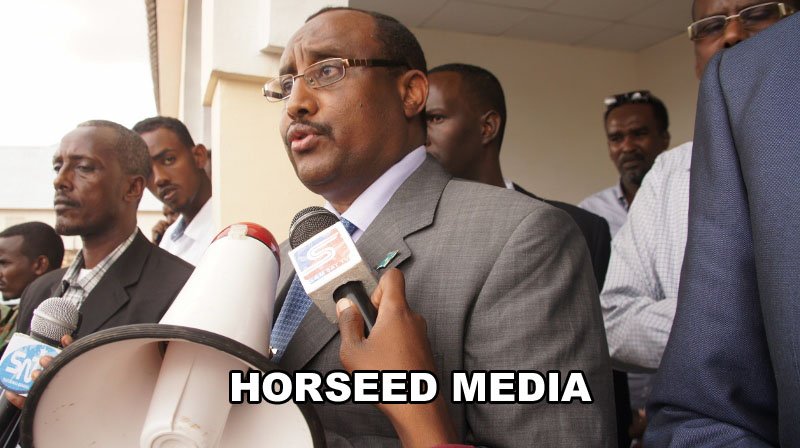
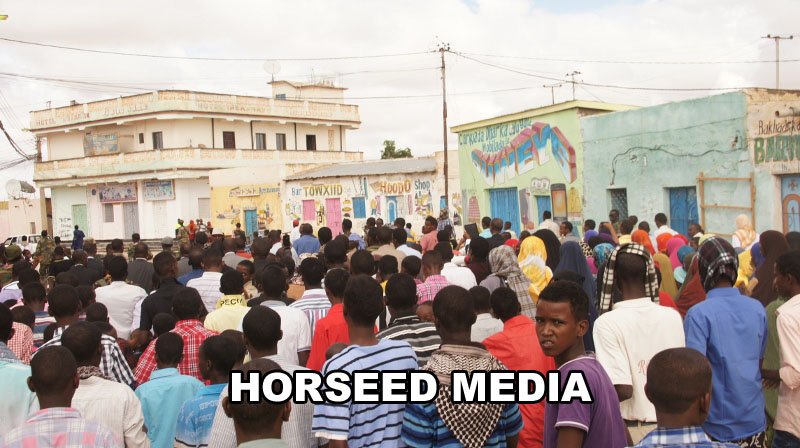
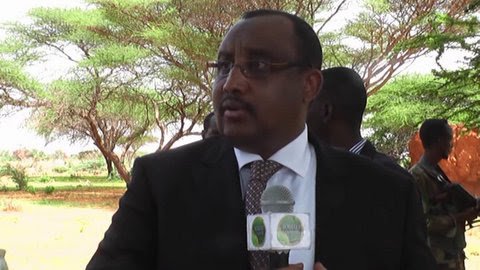
-
That is a love song guys and not about politics.
-
Che -Guevara;882594 wrote:The system of governance is only as good as the people adopted and implemented it. So, it doesn't really matter what system is in place as long as Somalis and their leaders won't honor it and execute it in accordance with stated goals.Things & times have changed, not honoring the agree upon system of governance and executing it in accordance with stated goals is unacceptable and there are dire consequences.
I am pretty sure our Federal President and his aids caught on to the direct warning Issued by the only Federal State, that went along with welcoming the new Federal Government.
In a press release the Puntland government stated that it welcomed new Prime Minister Abdi Farah Shirdon Sa’id andurged the new government to adhere to Somalia’s constitution,Garowe Online reports.The government press release stated that Puntland would continue playing its role in the federal government of Somalia andadvocated that new government honor the Somalia constitution“The Puntland government will assess and liaise with the Federal government provided that it follows and fulfills the previous agreements and constitutional provisions,” read the press release.Puntland Minister of Information, Mohamud Aydid Dirir, read the government press release in Garowe,stated that one of the provisions that is expected to be completed by the new Federal Government was the completion of the Federal system.The completion of the federal system involves the finalizing of the Upper House of Parliament also referred to as Senate that includes three representatives from each region in Somalia.The press release also requested that the Federal government of Somalia support the culmination of Federal statesLastly the press release appealed that the new government equally share assistance given to the Federal Government of Somalia. -
THE CRUCIAL DECISIONSOn the major agenda questions listed above – the upholding of national unity, continued participation of the national reconciliation dialogue and the re-establishment of public institutions – were agreed without much debate. However, the four most critical decisions on whihc the Constitutional Conference had to make, and their justifications are as follows:■Taking Unilateral Decision to Establish Puntland State of Somalia: It was argued that 7 years of statelessness without a light at the end of the tunnel was long enough to wait for a national solution. It was further believed that the adoption of a self-governing state would not only enhance law and order and development in the zone but also contribute to resolution of the Somali crisis. It was, therefore, decided to establish the Puntland State of Somalia to bring together and locally govern the 5 regions of Bari, Sool, Nugal, Eastern Sanaag and North Mudug as one federal entity of a future united national federal government of Somalia.■Federalism Initiative: The verdict of the federalism choice was based on three considerations: 1) that this system of zonal self-governing was the best approach that Somali communities could, under the circumstances, heal and overcome the fear, hatred and distrust of the bloody civil war; 2) that it offered a middle solution between an autocratic, centralized system of governance and outright secession; and 3) that decentralization empowered district and regional communities and offered more balanced and more productive socio-economic development opportunities.■Puntland Boundaries: Both the Charter Drafting Committee and the Conference delegates spent long hours of heated debate on determining the boundaries of the new State of Puntland, of which most of its borders are defined by the Indian Ocean and the Gulf of Aden seas. Although traditional and colonial clan border lines were considered, it finally agreed to respect the rights and views of neighboring communities in the South, Southwest and Northwest borders of the new State. A provision was written in the first Charter recommending consultation with the neighboring communities on demarcation of the boundaries so that mutually satisfactory agreements are reached peacefully.■The Role of the Traditionally Titled Elders in the New State: With the critical role the elders played in Puntland in maintaining peace, unity and institution building and with the precedent of politicizing traditional elders’ role in Somaliland by creating an Upper House of Elders (Guurti) there, Puntland elders’ political responsibilities and how it should be reflected in the Charter were discussed. The elders were consulted and given the option of becoming politicians and join the political fray and mudslinging, or to remain in their traditional role. They chose to serve their communities as they have always done and declined official political roles. Nevertheless, the elders should have an important place in the Charter/Constitutions of Puntland under provisions of unity, peace-making, conflict resolution and public orientation towards peace and development.LESSONS LEARNEDIt is obvious to Somalis and foreign Somalia observers that the creation of the Puntland self-governing state contributed to the consolidation of peace and stability in the zone; enabled it to re-build the disintegrated public institutions, rehabilitate vital infrastructures and encourage vibrant private sector development.These are important lessons for anarchic and warring regions of Somalia. I believe it is now recognized that if the South-Central regions had emulated the Puntland pioneering example, the situation there could have been vastly different and that the nation might have been at peace today.As a choice between unviable Northern secession and 20-year senseless civil war in the South, the Puntland option of federalism is acknowledged to offer the most practical solution to Somalia’s intractable political problem, in which Puntland could play a positive role since it has traditionally acted as the bridge linking Northern and Southern Somalia, not only geographically but also culturally – the “interpreter” of the two!Within Puntland, it is learned that not all the expectations of enjoying the fruits of a democratization process and the development of the economic potential of the region could be fulfilled within the timeframes set out in the first Charter of Puntland State by the Constitutional Conference. The people of Puntland are still learning that it takes more than wishful-thinking to mobilize the potential of the people and fully exploit the resources of a country, and that it requires qualified and competent leadership to achieve those goals.Mohamed Abshir Waldo is a veteran Somali journalist. He played a large role in the formation of Puntland State of Somalia and setting up War-torn Society Project in Puntland, a predecessor of Puntland Development and Research Centre. This paper appeared in Somalia Research Report guest-edited by Abdul Ahmed III.An old article but very informative and it should answer those who wonder why Federalism for Somalia.
-
Federalism In Somalia: Birth of Puntland State and The Lessons Learned!!!By Mohamed Abshir WaldoWHY FEDERALISM?... s-learned/The idea of Federalism in Somalia was first put forward by the Pro-Italian Hisbiya Digil & Mirifle political party in the 1950s but practically introduced by Puntland State of Somalia, which was established in 1998 as a federal entity of a future united Somalia. The decision to adopt a decentralized system of government – federalism – was not taken lightly or hastily. It was not borne out of emotion, clan sentimentalism or as resentment resulting from the clan-cleansing massacre of thousands of people originating from the current Puntland regions that took place in what is now known as South-Central Somalia (SCS), mainly in Mogadishu.The people of Puntland reached the decision to establish a pioneering Federal State after months of soul searching deliberations under compelling circumstances, including the collapse of the national government of Dictator Gen. Mohamed Siyad Barre in 1991 and the consequent disintegration of all public institutions. It was also the result of over 7 years of internecine civil war; the displacement of millions of people forced to flee from their ancestral homes in the south; their properties and other possessions seized; the failure of 9 externally sponsored reconciliation meetings plus a dozen local peace initiatives; and the declared secession of a big a chunk of the Somali Republic by Northwestern Regions of Somalia (Somaliland).Notwithstanding all the bitterness and worries listed above, the people of Puntland (then known as “North-Eastern Region”) offered to host the first formal National Reconciliation Conference inside Somalia in May 1997 as a follow up to the National Reconciliation Conference (NRC) held in SODERE (Ethiopia) during the last months of 1996. The offer to hold the NRC in Bosaso was warmly welcomed by Somalis everywhere and endorsed by the international community. For four months Bosaso was consumed by major preparations – importing a conference tent (later used for the Arta/Djibouti conference in 2000!), hiring a fleet of vehicles, booking all available hotel rooms and decent villas in town, and recruiting hundreds of women and youth for the event – when all of a sudden the southern Somalia warlord “leaders” announced that they would boycott the Bosaso National Reconciliation Conference. As a result of the boycott, the preparations were stopped and conference cancelled. This was the last straw, adding insult to injury.THE PUNTLAND STATE PROCESSGuided by the fundamental principle in its political conduct—“To pursue a conscious policy of changing the course and orientation of our politics away from a pathological concern with clan hatred and conflict towards genuine commitment to dynamic development and the advancement of fundamental interests of the people, the region and the country” in its political Charter— the Somali Salvation Democratic Front (SSDF), the main political authority of the North-Eastern Regions (NER) at the time, called for an urgent Community Consultative Conference to discuss the critical regional and national issues, including regional security, public institution-building, national reconciliation and consideration of politico-economic decentralization options. The Community Consultative Conference (CCC) was held in Garowe from February 28 to 8th March 1998. The Sool and Sanaag communities with their traditional and political parties – USP and SNDU- joined the process at this stage.The Consultative Conference Preparatory/Organizing Committee, of which I was the Chairman, was mandated to propose draft answers to the following Agenda questions:1.How longer should we wait for the restoration of a national government after 7 years of ongoing civil strife, breakdown of law and order, disintegration of public institutions and failure of 9 reconciliation conferences?2.How to react to the fiasco of the Bosaso Conference boycott, highlighting the depth of fear and distrust among Somalis?3.How could the zone organize itself and establish unified working public institutions and remain united with the rest of the nation, which is used to a centralized system of governance?4.What would be the most practical system of governance that would heal the scars of the bloody civil war, assure security and restore trust among communities and enable them to determine their internal affairs until such time as national reconciliation is achieved?5.Would decentralized system of governance and community empowerment offer regions more productive socio-economic development?6.What role could we play to defend national unity and restrain secessionist tendencies?The CCC considered these Agenda questions, among others, and proposed answers prepared by the Preparatory Committee. Because of the weighty considerations and serious implications of these questions/answers, the CCC decided to hold a Constitutional Conference (CC) for further deliberations and to make final decisions on these crucial issues. The same Preparatory Committee, with me again as the Chairman, was appointed to organize the CCC, prepare Agenda containing the recommendations of the CCC, to Draft a Charter and to facilitate and coordinate more than 600 delegates to the Constitutional Conference , which was to be held in Garowe within 8 weeks.The Constitutional Conference was convened in Garowe on May 15, 1998, after nearly 8 weeks of preparation. The composition and the working procedure of numerous delegates were an important innovation on past, post-1991 Somali conferences. Delegates to the Conference were directly elected from their respective villages, districts and regions; ex-officio political and regional administration leaders were part of the delegates elected along with their respective regional representations; and 27 most senior elders, who waived their right to vote so as to remain neutral, were there to chair the conference, resolve disputes, offer advice and witness the process.There were the principal political leaders, Gen. Mohamed Abshir Musse and Col. Abdullahi Yusuf Ahmed of SSDF, Mohamed Abdi Hashi of USP and Ali Ismail Abdigiir of SNDU but their status inside the Conference Hall was simple delegates sitting with their regional delegations. Thus, there was a democratic, level playing field. The delegates at the Constitutional Conference were provided with the opportunity and power to decide, draft and elect whoever they wanted.The Constitutional Conference process took two and half months, which was unusually long partly due to regional representation and other local issues but the delay was mainly due to time needed for thorough assessment of the benefits, effectiveness and implications, regionally and nationally, of decisions concerning the adoption of a federal system of governance. Issues concerning the name and borders of the entity, the impact on national reconciliation and unity as well as on regional economic development were deliberated for weeks.Continue onto next page to finish article.
-
There seems to be a lot of confusion over this Federalism platform for Somalia, that has been signed in gold into our political and governmental foundation "the Somali constitution". The man who founded federalism for Somalia AUN former President Abduallhi Yusuf Axmed and the state that pushed Federalism into the Somali constitution Puntland State of Somalia resolved big political problems, but federalism was never meant to solve all of Somalia's political blunders. But for Somalia Federalism is beyond a solution or just an answer but rather a cure to 21 years of brutal dictatorship, followed by 21 years of anarchy, terrorism, mistrust, hate, disunity, piracy, and Secessionist.
Federalism was chosen to bring trust back into our political system, and empower our people to take their fate into their own hands. A bottom up approach for nation building, grass root uplifting for the entire nation. We have seen federalism at practice and Puntland is a prime example for what future federal states can achieve and will achieve. Also Federalism is a clear cut throat path for Somaliland to accept without much political failure or shame, since it will not dissolve their political structure besides their dream of statehood.
We have tried and seen what a centralized power structure for Somalia can lead to, a repeat of dictatorship, a city state and the unprecedented lack of accountability and corruption, is not something we can afford to give a second chance too. Federalism let's everyone take real ownership and responsibility of the country and our federal government.
All of Somalia can not be managed from Mogadishu that we can all agree on.
-
Maarodi;876675 wrote:Is this just another prediction or the real deal :confused:This is not a prediction it's a fact.
The President should be in the airwaves in a few hours.
-
Just remember you heard it from here first.
-
Puntland needs to keep the pressure on.
-
Somalia;837422 wrote:These niggas, relax everyone has one.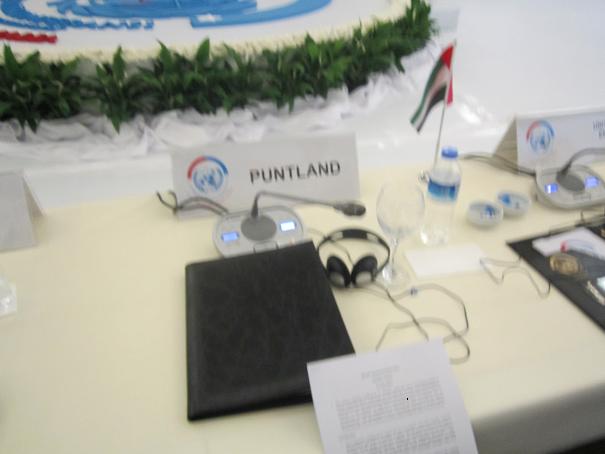
Why you had to ruin it for them horta? Siciid1986 really thought Istanbul conference recognized beesha Somaliland. :eek:
Now their little card of recognition, they were hoping to run to Hargeysa with seems recognized names of the different political entities and regions in Somalia. Comprehension is not so great in the Triangle take it easy on them from now on.
-
That's so funny wallahi and at the same time really does hit home.
Abtigiis you can please provide the link for this debate.
Thanks.
-
S!!l-Yanyo's days in Northwest Somalia are numbered.
-
Hargeysa military court sentences 17 civilians to die
A military court in Hargeisa, the capital of the self-proclaimed Somaliland, has sentenced 17 civilians to death for attacking a military base.
The death penalties were handed down the day after the attack in which seven people were killed, a Somaliland official told the BBC.
An armed group carried out the attack, claiming the military had built on land that they had owned for generations.
Swift case
A group of almost 30 armed civilians belonging to the same clan attacked soldiers in the camp on Tuesday, leading to a firefight in which three soldiers were killed, Somaliland's Defence Minister Ahmed Haji Ali told the BBC's Somali service.
After being arrested, 28 people were held overnight - and the military trial held the following day.
Five minors were also given life sentences, after seven people - including three soldiers - were killed, a Somaliland official told the BBC.
Three people were acquitted, and the trial of three others postponed because they had been injured during the fighting.
The civilians had confessed and an attack on Somaliland's military carries a mandatory death penalty for adults, the chairman of the military court, Yusuf Farah, told the BBC.
The BBC's Mohamed Mohamed says activists in Somaliland are likely to raise questions about the swiftness of the case - and whether the civilians had been properly represented.
If the death penalties are carried out, there could be a backlash from other members of the clan involved and they may even resort to violence, our correspondent says.
Land disputes are common and often complex in Somaliland, he adds.
Somaliland unilaterally declared independence in 1991 after the overthrow of Somali military dictator Siad Barre.
It is relatively stable and holds regular elections, which have seen peaceful transfers of power.
-
The establishment of this unique State in 1998 shall become the hallmark of the returned of a heavyweight nation on the international stage like never before. An answer to a physically, mentally, and politically broken Somalia. While some sough anarcy, warlordism & division as an answer to our fail state, Puntland chartered a bottom up approach of state building, unity and a new Somalia based on federalism. The state past two leaders have set the foundation for the future of the entire country. From AUN his excellency President Abduallhi Yusuf bravery and intelligence to go after those holding the country hostage, bringing back Governance to the Nation's capital and challenging the status quo in measures so unique and powerful. A leader who made the TFG we have today even possible at times even funded the expanses of the federal government with the limited resources of Puntland state and it's people.
And working his own ambiguous drive was mudane Adde Musse another visionary the former President of Puntland state who has made the Oil Era even possible. While some looked for a political or military solution out of the Somali mess, he looked beyond that and found an economical uplifting. Today all Somali hope are on the Oil & Federalism, and inshallah Puntland state it's leadership and people will continue to push forward for better days.
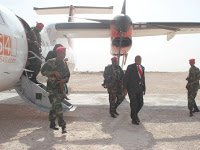
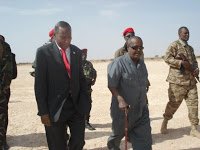
As a young man from Somalinet fourms put it so clearly
Perfect_Order wrote:I believe Puntland has Somalia's best interests at heart. I believe Puntland is sincere about ending the transition and having a full functioning government. I believe that Puntland wants Somalia to be economically prosperous and stable. I believe Puntland wants Somalia to be economically integerated, stable, and coheisive. I also believe that Puntland wants a clear constitution that lays out the roles of states/federal levels clearly (albeit in the way it sees fit). I also believe that Puntland doesn't want to give up it's achievements for a faulty system that is not likely to succeed. Puntland has the right to lobby for the best possible solution for Somalia. Puntland is not the big bad wolf. Puntland knows if Somalia suceeds, they suceed. So it is high time we need to get out of this Puntland is out to destroy Somalia mentality.And today the international community is finally having a comprehensive understanding of Puntland.
The Puntland region is unique — it seeks unity of the Somali people and adheres to a federal system of government unlike the secessionist region of Somaliland to its west. Puntland is not trying to obtain international recognition as a separate nation.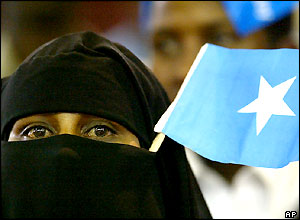
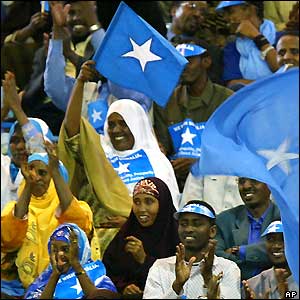
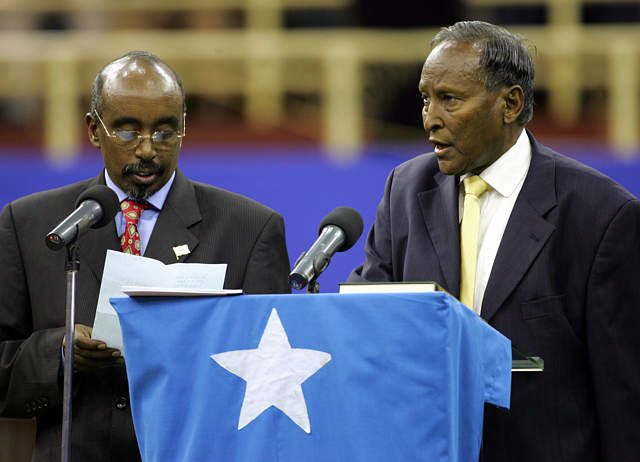
From Beijing To New Delhi Signs of a New Somalia Emerging
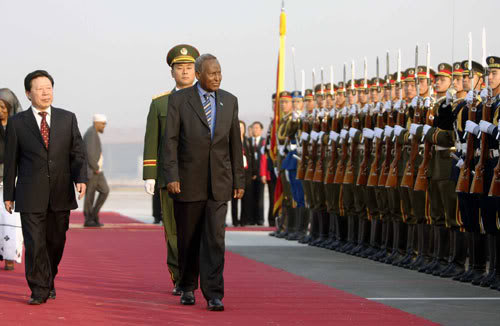

-
OdaySomali;830591 wrote:Manshallah on the oil... lets hope its in abundent quantities
:cool: Inshallah
-
Kingofkings stand down you lost this one.
"The African Country's Puntland State" does not mean that Puntland is a country in Africa but rather that it's a State in the African country of Somalia.
-
Popular Contributors





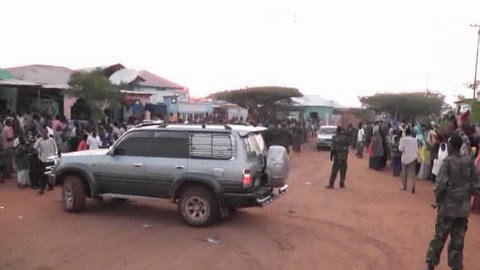
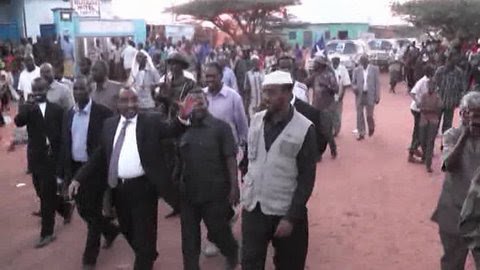
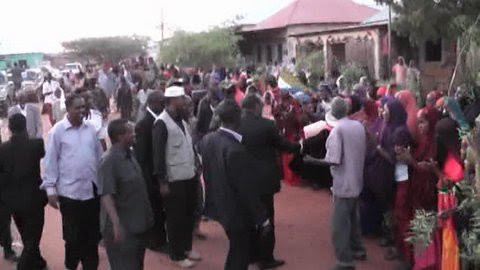
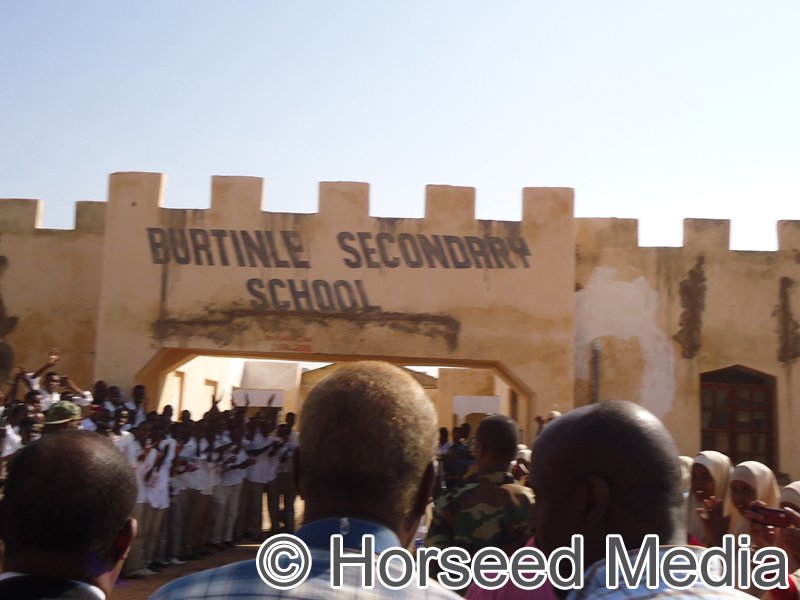
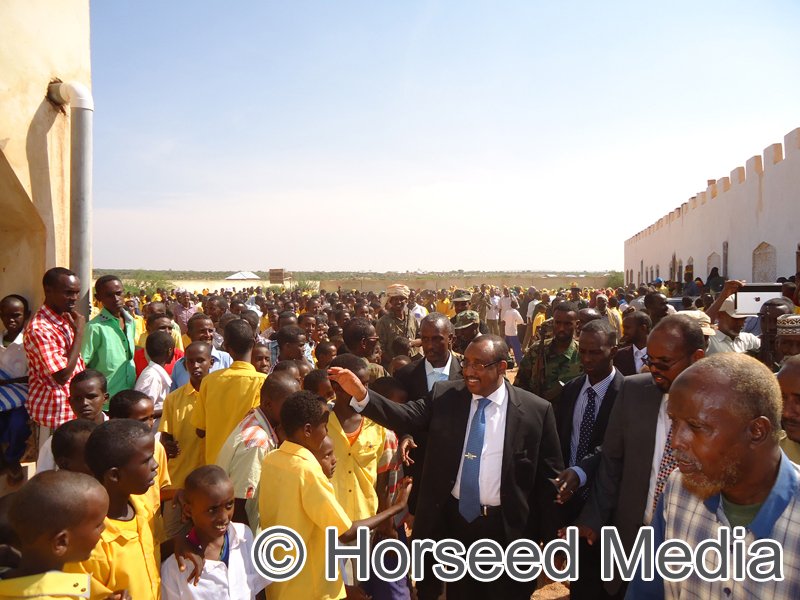
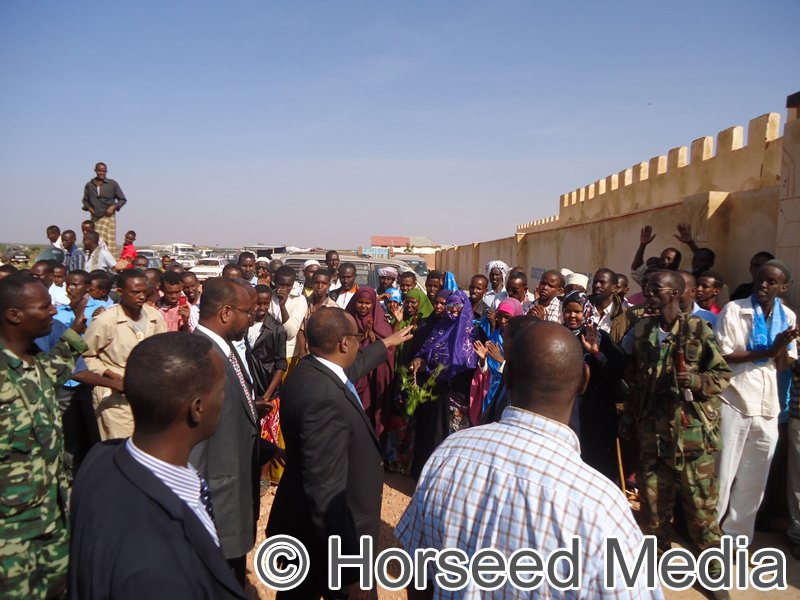
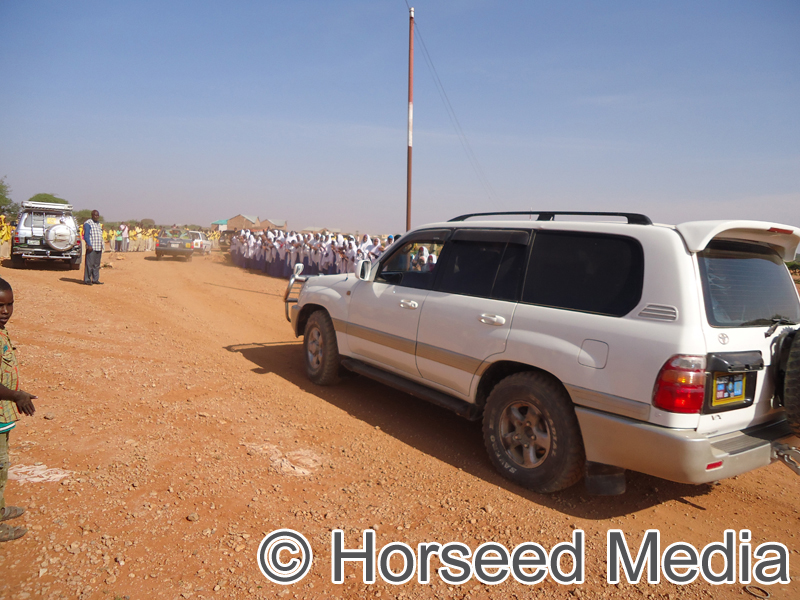



Somaliland: Somcable major optic fiber project kicks off in the Somaliland republic +PICS
in Politics
Posted
Nice well done SomCable